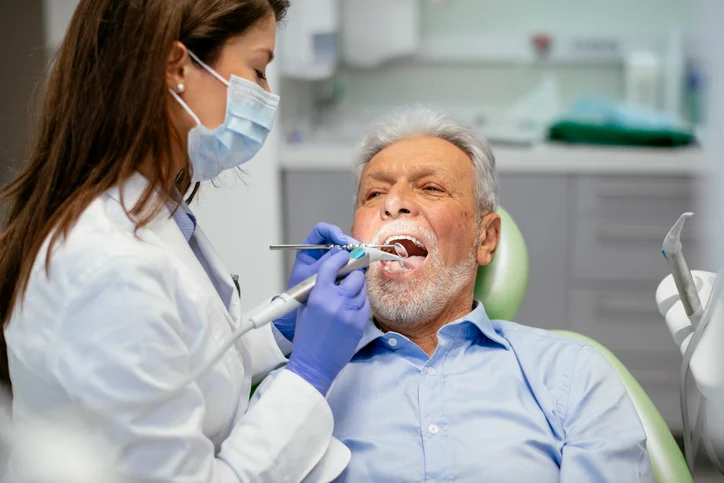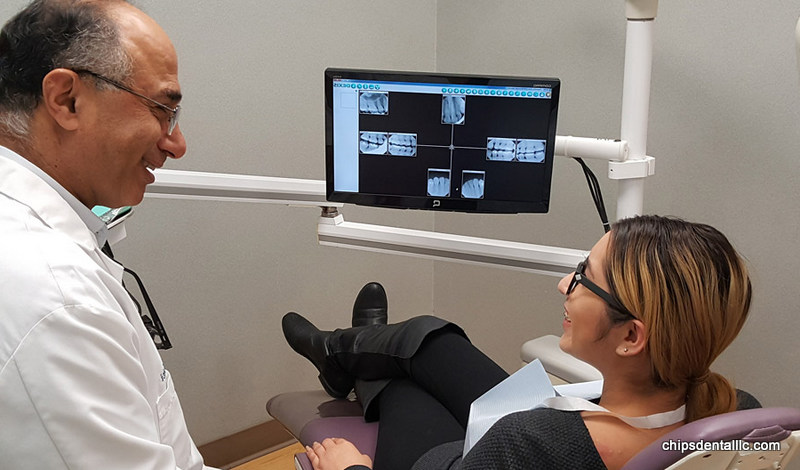Health insurance coverage for dental surgery varies by policy. Some plans include dental procedures, while others require additional dental coverage.
Deciphering the specifics of health insurance policies is essential, particularly when it comes to dental surgery coverage. The intersection of dental health and insurance is a nuanced area, where the fine print can dictate coverage options. Dental surgeries, which range from extractions to restorative surgeries, may necessitate a review of your health plan to determine if such procedures fall under your coverage.
Typically, standard health insurance plans provide limited dental care, prompting the need for supplementary dental insurance for comprehensive coverage. To make an informed decision, it’s crucial to consult with insurance providers directly, as policy details and coverage can vary significantly. Navigating the intricacies of insurance plans ensures that individuals are prepared for potential dental surgeries, with a clear understanding of the financial implications.

Credit: www.deltadental.com
Unveiling Dental Insurance Coverage
When considering a health insurance plan, the inclusion of dental surgery coverage is often a key concern. Dental health is as important as general health, yet many overlook the details of their insurance policies until it’s time for dental intervention. Let’s navigate the specifics of dental insurance coverage to ensure clarity and preparedness.
The Essence Of Dental Coverage In Health Insurance
Dental coverage is a specialized arm of health insurance plans. It tackles the costs associated with dental care, including routine check-ups, orthodontics, extractions, and surgeries. Not all health insurance automatically covers dental services. Understanding the scope of your coverage is crucial to avoid unexpected expenses. Here are key elements typically covered under dental insurance:
- Preventive care: Cleanings, exams, and x-rays
- Basic procedures: Fillings, root canals, and extractions
- Major procedures: Crowns, bridges, and surgeries
Standard Health Insurance Vs. Dental Insurance
Standard health insurance policies focus on medical needs excluding teeth. They cover hospital stays, surgeries, and treatments unrelated to dental health. Conversely, dental insurance specifically targets oral health needs. It’s often sold as a separate policy. Comparing the two side-by-side reveals the differences:
| Health Insurance | Dental Insurance |
|---|---|
| Addresses broad medical issues | Focuses on oral health |
| Covers hospitalization and medical procedures | Covers preventive and major dental work |
| Often excludes dental surgery | May include dental surgery with stipulations |
Some health plans integrate dental coverage as an additional benefit. It’s essential to review your policy details or speak with your insurance provider to understand your dental surgery coverage fully. Remember, specific coverages can vary greatly between plans and insurers.
Types Of Dental Surgeries
When talking about dental health, surgeries might come to mind. Not every toothache ends with surgery. But some dental conditions require it. Insurance may cover these surgeries.
Common Dental Procedures
Dental care involves a range of procedures. Insurers assess each for coverage. Here are usual ones:
- Extractions: Removal of teeth.
- Root Canals: Treatment for infected roots.
- Fillings: Repair of cavities in teeth.
- Crowns: Caps for damaged teeth.
Advanced Surgical Interventions
Some dental issues need complex surgeries. These might get insurance cover:
- Implants: Replacing missing teeth with metal posts.
- Periodontal Surgery: Correcting gum disease effects.
- Maxillofacial Surgery: Addressing facial, jaw issues related to dental health.
Deciphering Your Policy
Understanding health insurance can feel like learning a new language. With dental surgery expenses often causing wallets to shudder, it’s valuable to know what your health insurance covers. Deciphering your policy is crucial to avoid unexpected bills after dental procedures. Let’s delve into the specifics, one clause at a time.
Policy Language Specifics
Insurance jargon can be tricky. Key terms like “in-network,” “pre-authorization,” and “exclusions” guide your coverage. Policies might also vary in how they categorize dental surgery—with distinctions such as “routine,” “major,” or “emergency.” Always read the fine print. It’s important to understand definitions as they apply to your plan.
Determining The Extent Of Coverage
Each policy has a coverage limit. Look for sections labeled “Covered Services” or “Benefits.”
- Maximum Benefit: The top amount insurance will pay within a year.
- Deductible: What you pay before insurance kicks in.
- Copayment: Your share for each dental visit or surgery.
Reviewing these details helps gauge potential out-of-pocket costs for dental surgery. Some insurers cover a percentage of the cost of surgery, others may only cover specific types of surgeries. Confirm coverage by calling customer service or asking your dentist to submit a pre-treatment estimate.
| Type of Surgery | Coverage Level |
|---|---|
| Implants | Partial or None |
| Wisdom Tooth Extraction | Full or Partial |
| Corrective Jaw Surgery | Varies |
Remember, a pre-approval process may be necessary for certain surgeries. Never assume everything is covered; verify to avoid surprises.

Credit: sbis.ca
Factors Influencing Dental Surgery Coverage
Understanding what your health insurance covers can be tricky. When it comes to dental surgery, coverage varies widely. Several key factors determine if your procedure gets the green light from your insurance provider. Knowing these could save you both time and money.
Insurance Plan Variations
Not all health insurance plans are made equal. Some offer comprehensive dental surgery coverage. Different providers have unique policies. Even within the same insurance company, there may be a range of plans. Each with its own level of dental surgery coverage. It’s crucial to review your policy details to understand what is and isn’t covered.
Let’s break down the types of insurance plans:
- HMO: Health Maintenance Organization plans usually limit coverage to care from providers who work for or contract with the HMO.
- PPO: Preferred Provider Organization plans provide more flexibility when choosing a dental care provider.
- EPO: Exclusive Provider Organization plans might cover dental surgery only if performed by in-network providers.
- Indemnity Plans: These plans often allow you to see any dental surgeon, but they might require higher out-of-pocket costs.
The Impact Of Medical Necessity
Medical necessity plays a pivotal role in determining whether health insurance will cover dental surgery. Insurers typically cover procedures they deem medically necessary. This means the surgery must be needed to protect your health, not just for cosmetic reasons.
What counts as medically necessary? Below are examples:
| Medically Necessary | Not Medically Necessary |
|---|---|
| Reconstructive surgery after an accident | Teeth whitening |
| Correcting congenital abnormalities | Veneers for aesthetic purposes |
| Surgeries for oral cancer | Elective smile makeovers |
Your surgeon’s input can be vital. A detailed report from the surgeon highlighting the necessity of the procedure can help secure coverage from your insurance provider. Include documentation like X-rays or results from clinical evaluations.
Navigating Insurance Claims For Dental Surgery
Dental surgery can be a daunting experience. Ensuring your treatment is covered by insurance is crucial. Understanding what your health insurance entails for dental procedures simplifies the process. It’s vital to grasp the steps involved in securing coverage for your dental surgery. This guidance covers two critical stages: the pre-authorization process and the claims filing procedure.
Pre-authorization Process
Pre-authorization is a green light from your insurance provider before surgery. It confirms that the procedure is medically necessary. Let’s look at key actions for successful pre-authorization:
- Review your policy: Understand the dental coverage provided.
- Gather documentation: Acquire all medical records and a dentist’s recommendation.
- Submit a request: Your dentist usually handles this, sending the necessary paperwork to your insurer.
The Claims Filing Procedure
Filing a claim is submitting proof of your surgery to get coverage. Follow these steps for a smooth claims process:
- Collect all receipts: Keep detailed records of all expenses related to your surgery.
- Complete claim form: Fill out your insurance claim form accurately with all required details.
- Submit promptly: Send the form and receipts to your insurance company without delay.
Track your claim status regularly. Be prompt in addressing any additional information requests from your insurer.

Credit: www.deltadental.com
Out-of-pocket Expenses
Want to know about your out-of-pocket expenses for dental surgery? These costs might surprise you. Health insurance doesn’t always cover everything. Let’s break them down.
Understanding Deductibles And Copays
The bill for dental surgery can be daunting. Your deductible is the first hurdle. That’s the money you pay before insurance steps in. Once you pay your deductible, you enter the copay phase. Copays are your share of the cost for services, like an office visit or surgery, and insurance covers the rest.
| Deductible | Copay |
|---|---|
| You pay this first | Your share after the deductible |
The Role Of Annual Maximums
Annual maximums can hit your wallet hard. This is the most your insurance will pay in one year. Once you hit this cap, you pay 100% of any additional dental costs. Understanding your plan’s annual maximum is key to planning your finances around dental surgery.
- Check your annual maximum: Knowing this helps you plan.
- Plan your procedures: Staggering treatments can avoid hitting the cap.
Alternatives To Traditional Insurance
Health insurance might not cover all dental surgery costs. Many people look for other ways to pay for their treatments. Below are some choices if traditional insurance doesn’t help.
Dental Discount Programs
Dental discount programs can reduce your bills without insurance. They work by giving discounts on various services when you pay a membership fee. Here’s why they shine:
- No waiting periods: You get discounts right away.
- Unlimited use: Use discounts as much as you need.
- Wide acceptance: Many dentists accept these plans.
Choose a program that fits your needs. Confirm it partners with dentists you trust.
Financing Options For Dental Care
Payment plans or credit options can spread dental costs over time. Look for these benefits:
| Type | Benefits |
|---|---|
| Payment Plans | Pay bit by bit, often with low interest. |
| Medical Credit Cards | Specific for health costs, sometimes with promotional periods of no interest. |
| Personal Loans | A lump sum of money with a set repayment schedule. |
Check for hidden fees and interest rates before choosing a financing option. Good credit history helps in getting the best terms.
Preventive Measures And Dental Health
The quest for a sparkling smile begins with understanding how health insurance blends with dental surgery. Good oral habits spare not only your teeth but may also cut down costs significantly. Let’s delve into how routine dental care intertwines with insurance and why prevention truly is the financial remedy we often overlook.
Routine Dental Care And Cost Benefits
Regular check-ups keep teeth in top shape. Visiting a dentist twice a year is crucial. It catches problems early. This can save teeth and wallets. Consider these points:
- Cleanings: They prevent cavities and gum disease.
- Fluoride treatments: These protect enamel, fighting decay.
- X-rays: They reveal hidden issues, stopping further damage.
Insurance often sees preventative care as a bargain. It may cover routine maintenance fully or with minimal fees. This is because fixing a small dental issue now costs less than surgery later.
Insurance Incentives For Preventive Care
Insurers reward smart, proactive behavior. Those who make preventive measures a habit can reap benefits. Things to note:
| Preventive Action | Typical Insurance Perk |
|---|---|
| Annual Cleanings | Often covered at 100% |
| Sealants | Potentially reduced costs |
| Early Treatment | Lower co-pays or deductibles |
Such perks make it clear—insurers prefer paying for prevention now rather than surgery later. Many plans offer discounts on services if used within network providers. This encourages routine dental care, keeping you out of the operating room.
Appealing A Denial Of Coverage
Health insurance coverage for dental surgery often raises questions, especially when a claim faces denial. The process to appeal such a decision can be complicated. Yet, understanding your rights and the steps necessary can lead to a different outcome. Here’s how you can challenge a denial of coverage for dental surgery and the importance of involving a dental advocate in your corner.
Steps To Contest A Decision
When your health insurer denies a claim, don’t accept it without a fight. Take these steps:
- Review your policy to understand what is covered.
- Collect all documents and records related to your dental surgery.
- Request a detailed explanation for the claim denial from your insurer.
- Contact your dental surgeon for an opinion or additional documentation.
- Submit a written appeal to your insurance carrier within the time frame specified.
Working With A Dental Advocate
A dental advocate can be your ally in the appeal process. They bring knowledge and experience to the table:
- Explain complex terms in your insurance policy.
- Guide you through the appeals process, step by step.
- Help gather necessary documentation to support your appeal.
- Negotiate with insurance companies on your behalf.
- Ensure your rights are protected during the appeal.
With a dental advocate, you improve your chances of reversing an unjust denial. They fight to get your dental surgery covered.
Future Of Dental Coverage In Health Insurance
The future of dental coverage in health insurance is a hot topic. As healthcare evolves, so does the integration of dental procedures in overall health plans. This section delves into the expected transformations in insurance policies and the influence of legislative measures on dental coverage.
Potential Changes In Insurance Policies
Insurance companies often review coverage options to meet changing needs. Dental surgery and overall dental health play vital roles in one’s wellbeing. Insurers may consider expanding dental surgery coverage. This could include treatments currently seen as elective or cosmetic.
- Extended coverages: Include more complex procedures beyond cleanings and fillings.
- Flexible plans: Customize coverage based on individual risk assessments and needs.
- Combination policies: Combine health and dental insurance for comprehensive care.
The goal is to ensure adequate access to dental care across populations. Insurers might also simplify claim processes to enhance customer satisfaction.
The Role Of Legislation And Advocacy
Legislation and advocacy shape the scope of insurance coverage. Proactive policies can mandate insurers to include dental surgery in health plans. This involvement ensures essential dental procedures are not out of reach.
| Legislative Measures | Impact |
|---|---|
| New Bills | Could require dental surgery coverage in health policies. |
| Public Awareness Campaigns | Encourage public demand for expanded dental coverage. |
| Advocacy Groups | Push reforms and influence policy directions. |
These efforts aim to address disparities in dental care accessibility. Inclusion and equity are at the core of future insurance policy reforms.
Frequently Asked Questions On Does Health Insurance Cover Dental Surgery
Does Dental Insurance Differ From Health Insurance?
Dental insurance is typically a separate policy from general health insurance. It focuses specifically on dental care and related procedures. Health insurance sometimes offers limited dental coverage but usually for dental emergencies or surgeries linked to medical issues.
What Dental Procedures Do Health Insurances Usually Cover?
Health insurance may cover dental procedures that are medically necessary, such as jaw surgery, extractions before radiation treatments, or dental care related to injury. Routine dental work like cleanings, fillings, and crowns are generally not covered.
Can Dental Surgery Be Covered Under Medical Emergency?
Yes, dental surgery can be covered if it’s considered a medical emergency. If the surgery is essential for treating a serious condition or trauma involving the jaw or mouth, health insurance might provide coverage.
How To Know If My Dental Surgery Is Covered?
To determine coverage, review your health insurance policy details and contact your provider. Insurance policies vary, so it’s crucial to confirm whether your specific dental surgery is included under your medical coverage.
Conclusion
Navigating the complexities of health insurance for dental surgery doesn’t have to be daunting. Confirm the specifics of your policy and speak with your insurer. Seeking personalized advice will ensure that your smile and finances remain healthy. Remember, being proactive about understanding your coverage can lead to better dental wellbeing.






